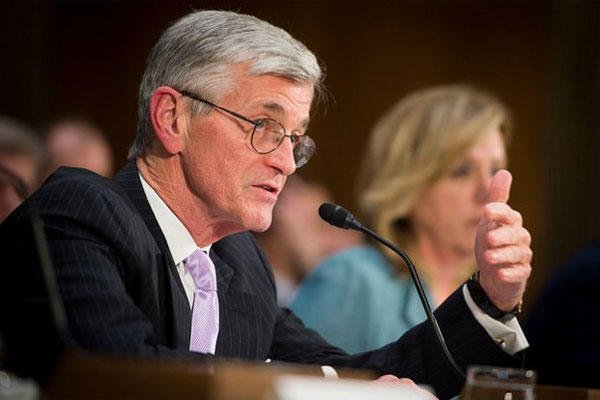Secretary of the Army John McHugh is stepping down as the service's top civilian leader after more than six years overseeing the end of combat in Iraq, a sizable drawdown, a troubled acquisition system, and steep defense-spending cuts, according Pentagon officials.
McHugh has been in discussions both with Defense Secretary Ash Carter for several weeks about his exit from his post. He has notified President Obama that he plans to leave office no later than Nov. 1, according to a Pentagon press release.
"Secretary McHugh has been a tremendous public servant for decades, and he has helped lead the Army through a period of challenge and change," Carter said in the release. "There will be much time in the coming months to appropriately celebrate his many accomplishments, but for now I will just say that every soldier is better off because of his hard work and vision, and so is the country."
During his tenure, McHugh pushed for reforms to the Army's acquisition system that has resulted in what he described as too many underperforming or cancelled programs and wasted tax-payer dollars.
It has been a continuous battle to reduce bureaucracy and improve oversight of costly modernization programs. Despite the efforts, the Army's top modernization effort to replace the Cold-War era Bradley fighting vehicle with the new Ground Combat Vehicle withered and died as the result of massive spending cuts under sequestration.
Congress cut nearly $500 million from the program in 2014. Army acquisition officials maintained that that GCV was doing well, but the service simply couldn't afford it in this fiscally-unforgiving climate.
McHugh also ended a five-year effort to search for a replacement of the Army's M4 carbine in 2013. The service canceled the competition before the final soldier-evaluation phase.
Instead, the service decided to upgrade to the M4A1 carbine – the special-operations version of the weapon that's been in use for just over a decade. It features a heavier barrel and a full-auto trigger.
Drawdown
McHugh has guided the Army during a significant drawdown, which involves cutting the active force from 520,000 soldiers down to 440,000-450,000 and possibly even further to 420,000 unless sequestration is repealed.
Gordon Sullivan, retired Army general and president and CEO of the Association of the U.S. Army, said McHugh will be remembered for more than just being the second longest-serving secretary of the Army.
"In his 6 1/2 years in office, he has shown a deft touch for dealing with soldiers and their families in often difficult times, and was a strong advocate for soldiers before Congress, where his warnings about pain and risk facing the Army were never heeded enough for our liking," Sullivan said in a written statement.
"McHugh saw, as we do, that one of the biggest threats to our future is the daunting challenge of war that never ends, where there is no time to regroup, catch a breath and prepare for the next fight."
-- Matthew Cox can be reached at matthew.cox@military.com





























